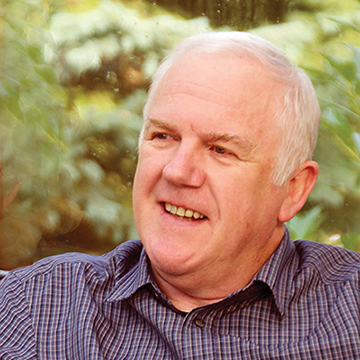In the acres of newsprint and hours of broadcast commentary following the death of His Royal Highness, the Duke of Edinburgh, one word – one concept – stands out: service. In this week’s article we reflect on service and servanthood.
18 April 2021
‘An extraordinary life of dedicated service’
When the Archbishop of Canterbury, Justin Welby, gave thanks to God for the Duke’s ‘extraordinary life of dedicated service,’ he added: ‘He consistently put the interests of others ahead of his own and, in so doing, provided an outstanding example of Christian service.’
The Archbishop warned against over-spiritualising the Duke: ‘We should not exaggerate’, he said. ‘The Duke would be the first to harrumph strongly at an over-spiritualisation of the world he found, let alone of himself.’
Nevertheless, service is a central, if unfashionable, aspect of Christian discipleship. It’s also the theme of a book, Servant Ministry: A portrait of Christ and a pattern for his followers, by one of BRF’s most popular authors, Tony Horsfall. For this week’s article, we’re posting an edited extract from Tony’s book. The section headings – the servant’s identity, calling, character, confidence and attentiveness – read like a summary of Prince Philip’s many gifts, attributes and convictions. May he rest in peace and rise in glory.
Servanthood is for all believers
My computer has a problem with the word ‘servanthood’. It refuses to recognise it. Every time I type the word, the computer underlines it in red, suggesting it is wrong in some way, but offering no alternative. Likewise, my home dictionary has no reference to servanthood. I was beginning to think I had made it up until, much to my relief, a quick check on the internet showed that lots of other people also use the word. It does exist.
Even so, it is difficult to find an exact definition, so I have made up my own. Servanthood is the state of being a servant; the attitude of mind, disposition of heart and daily practice of someone who serves.
My book Servant Ministry is based on the first Servant Song in Isaiah (42:1–9). My intention is to explain the meaning of the text and then to apply its teaching to the biblical theme of servanthood.
It leads us quite naturally to explore some significant topics:
- the motivation for service and the call to serve
- valid expressions of servanthood and the link between evangelism and social action
- character formation and what it means to be a servant, especially in leadership
- how to sustain ourselves over the long haul in the harsh realities of ministry
- the importance of listening to God and being directed by him in what we do, both on a daily basis and over the course of a lifetime.
My basic assumption throughout the book is that servanthood is for all believers, not just for those in some form of ‘full-time’ ministry. It is vital for the health and vitality of local churches that every member appreciates and understands their role as a servant of God.
At the same time, my focus in the book is on those in Christian leadership and cross-cultural ministry for whom the call to serve has led to significant life changes that impact them daily.
It is vital for the health of local churches that every member understands their role as a servant of God.
It is my strong conviction that servant leadership is vital for the well-being and effectiveness of any church or Christian organisation in the 21st century. For me, Christian leadership is synonymous with servant leadership.
Jesus the servant
I approach the Servant Song through two lenses, seeing it first as a portrait of Christ and second as a pattern for his followers. Jesus shows us through his life on earth what it means to be a servant, and he perfectly fulfils the picture painted for us in Isaiah. He is an example to us of true servanthood, and we are called with God’s help to imitate him: ‘Whoever claims to live in him must walk as Jesus did’ (1 John 2:6).
Servanthood can never be an optional extra in the Christian life; it is its foundation stone, and all disciples of Jesus must see themselves as servants.
The reflective life that I so often espouse is valid only if it is expressed outwardly in tangible acts of service, and love for God is real only when it leads to love for others.
Jesus is an example to us of true servanthood, and we are called with God’s help to imitate him.
Attentiveness is key
Perhaps the most important quality of a servant is attentiveness. A servant learns how to anticipate the master’s will by watching, listening and anticipating their desires and then responding discreetly and with the minimum of fuss.
All of us will want to consider if God wants us to continue doing what we are already doing or if he has something new for us to do. The answer will be found as we learn to listen attentively to what he is saying and as we keep our eyes on him so that we can respond to any direction he may give us.
It is God’s responsibility to make his will clear to us, and we can relax as we seek to discern what he is saying. Like the boy Samuel, who was told to go and lie down as he waited for God to speak, we too can rest in the assurance that God is well able to make his purpose known to us. Our responsibility is to maintain the attitude of heart that says, ‘Speak, Lord, for your servant is listening’ (see 1 Samuel 3:1–10).
Perhaps the most important quality of a servant is attentiveness.
Listening and responding are the twin aspects of attentiveness and are the primary qualities of a good servant. Perhaps this is the right time for all of us to become more acutely attentive to God in a very personal way. The question to ask ourselves is this: ‘What is God saying to me through the Servant Song, and how will I respond?’

Tony Horsfall is one of BRF’s best-loved authors. He is also a retreat giver, spiritual mentor and regular contributor to our Bible reading notes.

Servant Ministry
Servanthood is something to which all believers are called, not just those in full-time ministry, and so understanding what servanthood means is vital for the health and well-being of local churches. Writing from many years of Christian teaching and mentoring, Tony Horsfall applies insights drawn from Isaiah 42:1-9 to various topics around servanthood.

Encouragement in difficult times
Two more titles by another well-loved BRF author, Mags Duggan, bring hope and encouragement in difficult times:
